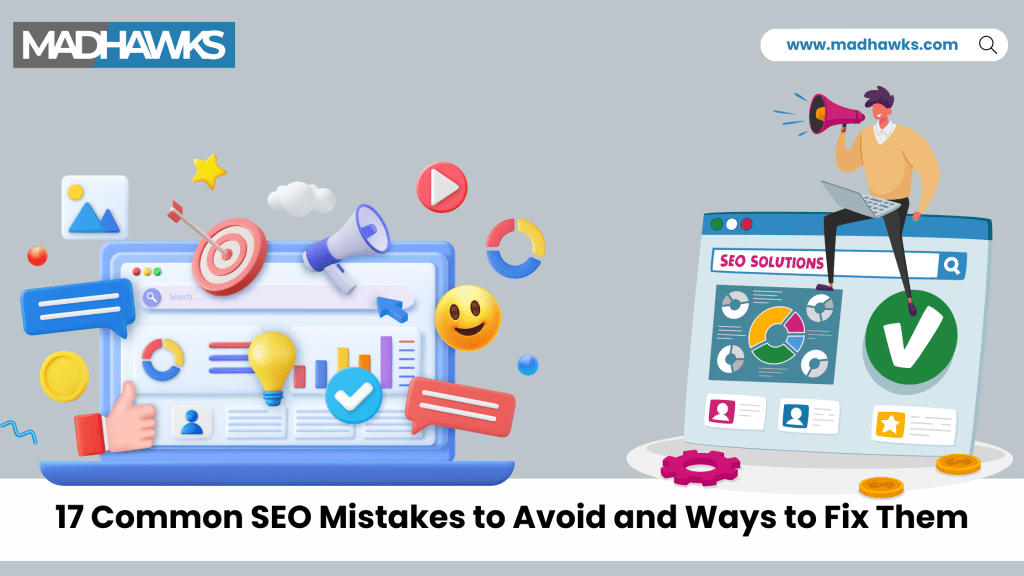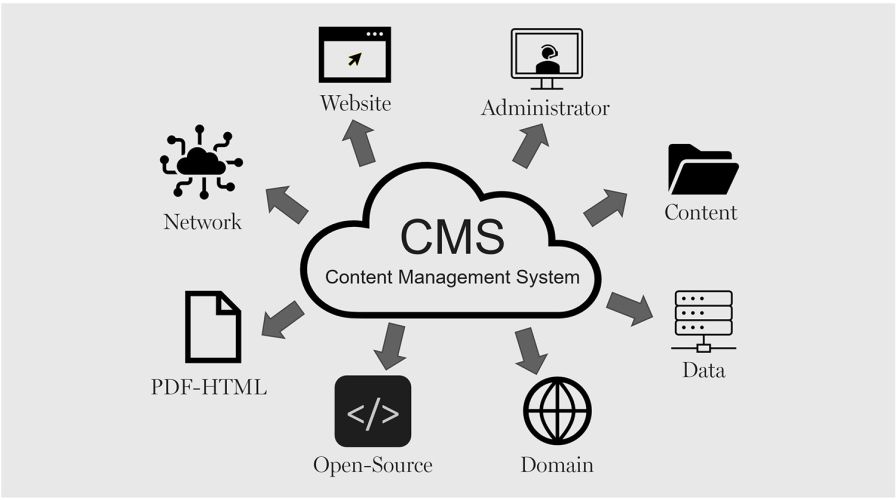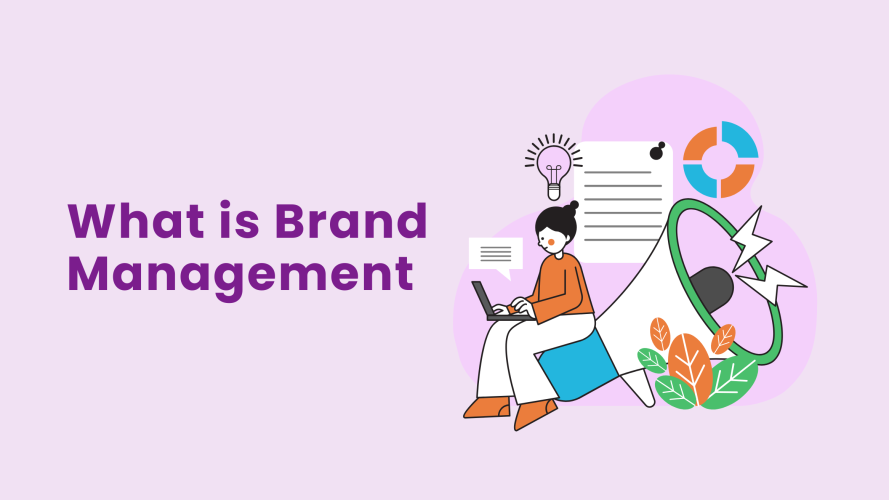
Do you wonder why your web pages are not ranking on Google even when you post regularly? It’s simply because you are making some SEO mistakes. In this article, we will discuss some common SEO mistakes that website owners make. Continue reading for detailed information!
Why Avoiding SEO Mistakes is Crucial for Business Growth
SEO mistakes can have a ripple effect on your business. Poor optimization can lead to lower search rankings, meaning fewer potential customers find your website. Over time, this can result in lost revenue and reduced brand visibility. Conversely, correcting these errors can significantly improve your rankings, driving more traffic and converting visitors into loyal customers.
Let’s explore 17 common SEO mistakes you need to avoid and how you can fix them.
1. Ignoring Mobile Optimization
With more than half of global web traffic coming from mobile devices, having a mobile-friendly website is non-negotiable. If your site isn’t optimized for mobile, not only will users bounce, but Google will also penalize your rankings.
- Fix: Use Google’s Mobile-Friendly Test tool to check your website’s mobile compatibility. Ensure your site uses responsive design, and consider AMP (Accelerated Mobile Pages) for faster mobile loading speeds.
2. Neglecting Keyword Research
Many businesses fail to conduct proper keyword research or rely on outdated keywords. Targeting the wrong keywords means you won’t attract the right audience.
- Fix: Use tools like Google Keyword Planner or Ahrefs to find relevant, high-traffic keywords that align with user intent. Focus on long-tail keywords to attract more targeted traffic.
3. Keyword Stuffing
Overloading your content with keywords (known as keyword stuffing) can harm user experience and result in penalties from Google.
- Fix: Integrate keywords naturally into your content. Aim for a keyword density of 1-2% and focus on writing for humans, not search engines.
4. Overlooking Meta Descriptions and Title Tags
Meta descriptions and title tags play a crucial role in SEO. Many websites either overlook them or don’t optimize them for relevant keywords.
- Fix: Craft compelling, keyword-rich title tags (60 characters max) and meta descriptions (155 characters max). Use tools like Yoast SEO for WordPress to ensure each page has unique, optimized tags.
5. Failing to Optimize for Local SEO
For businesses targeting local customers, failing to optimize for local SEO can limit visibility in Google’s local search results.
- Fix: Claim your Google My Business listing, ensure NAP (Name, Address, Phone) consistency across all platforms, and include location-based keywords in your content.
6. Ignoring Internal Linking
Internal linking helps distribute page authority across your site and makes it easier for Google to crawl and index your content. Failing to utilize internal links is a missed SEO opportunity.
- Fix: Include relevant internal links in every post or page. Ensure that you link to cornerstone content and other related blog posts to improve user navigation and boost page authority.
7. Not Using Alt Text for Images
Search engines cannot “see” images, so they rely on alt text to understand what the images depict. Failing to include descriptive alt text can hurt your SEO.
- Fix: For each image on your site, include descriptive alt text that incorporates relevant keywords without stuffing. This also improves accessibility for visually impaired users.
8. Slow Website Speed
A slow-loading website can drive users away and negatively affect your search rankings. Google considers page speed a ranking factor, so optimizing for speed is essential.
- Fix: Use Google PageSpeed Insights to evaluate your site’s speed. Optimize image sizes, use a CDN (Content Delivery Network), and enable browser caching to improve performance.
9. Poorly Structured URLs
Clunky, confusing URLs make it difficult for both users and search engines to understand the content of a page.
- Fix: Create SEO-friendly URLs that are short, descriptive, and contain relevant keywords. Avoid long strings of numbers or irrelevant characters.
10. Duplicate Content
Duplicate content can confuse search engines and lead to lower rankings. It can also dilute the effectiveness of your content marketing efforts.
- Fix: Use tools like Copyscape to identify duplicate content on your site. Ensure each page has unique, high-quality content that provides value to users.
11. Not Updating Content Regularly
Outdated content can harm your SEO efforts. Search engines favor fresh, relevant content, and regularly updated pages tend to rank higher.
- Fix: Regularly audit your existing content and update it with new data, examples, or trends. Add fresh blog posts and optimize older content to maintain relevancy.
12. No Sitemap Submission
A sitemap is essential for ensuring that search engines can crawl and index your website efficiently. Failing to submit one can result in missed opportunities for ranking.
- Fix: Create and submit an XML sitemap to Google Search Console. You can generate one using plugins like Yoast SEO or online tools like XML-Sitemaps.
13. Broken Links
Broken links create a poor user experience and can hurt your SEO by preventing search engines from properly crawling your site.
- Fix: Use tools like Screaming Frog or Ahrefs to regularly check for broken links. Fix or remove any that you find.
14. Not Using HTTPS
Google has made HTTPS a ranking factor, meaning sites that still use HTTP may see a drop in rankings.
- Fix: Install an SSL certificate to secure your site with HTTPS. Many hosting providers offer free SSL certificates through Let’s Encrypt.
15. Overlooking Structured Data (Schema Markup)
Structured data helps search engines better understand your content and display rich snippets in search results. Without it, your content might not stand out.
- Fix: Use structured data (schema markup) for elements like products, reviews, and events. Tools like Google’s Structured Data Markup Helper can guide you in implementing it on your site.
16. Ignoring User Experience (UX)
SEO isn’t just about pleasing search engines—it’s also about providing a great user experience. A website that is difficult to navigate will have higher bounce rates, impacting your SEO performance.
- Fix: Focus on creating a seamless user experience. Improve site navigation, ensure your design is mobile-friendly, and enhance the readability of your content by using headings, bullet points, and short paragraphs.
17. Neglecting Social Media Integration
While social media signals don’t directly impact SEO rankings, they play a vital role in driving traffic and increasing visibility.
- Fix: Integrate social sharing buttons on your website and regularly promote your content on platforms like Facebook, LinkedIn, and Twitter. Engage with your audience and encourage sharing to drive more traffic to your site.
Conclusion
Avoiding common SEO mistakes is essential to achieving higher search rankings, improving traffic, and driving more conversions for your business. By implementing the tips discussed in this guide, you can optimize your website for better performance, making it easier for search engines to crawl and rank your content.




